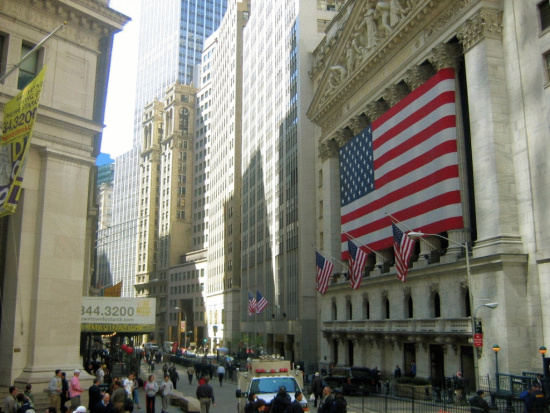Gambling is in our blood. Even when our brain tells us the odds are against us, our heart/belly/gonads say to go ahead, take a chance, bet the farm. Yeah, we know we’re likely to lose, but on the other hand we can dream. And fantasies of riches beyond measure tell our rational waking consciousness to take a hike. This time, I might be lucky.
As evidence, I offer three words: lottery, casino and market.
###
Lottery

You know, I know, we all know, the odds are way against us winning the jackpot, or even a worthy lesser prize. We don’t play for the 1 in 25 “double your money” itty-bitty payouts, of course, we’re in it for the big time, the millions and the billions. Last Jan. 13, the 44-state Powerball lottery offered a $1.586 billion jackpot (having rolled over for several weeks previously), the largest in history. Now at first blush, and with such a massive jackpot up for grabs, buying a $2 ticket looks like pretty good odds – more of an investment than a gamble, since you’re in the realm of a “fair bet.”
A fair bet is when you and I sit down and each of us slaps a $10 bill on the table. We toss a coin and the winner gets $20. It’s a zero sum game – what one of us loses, the other wins. Which is not the case with lotteries. Add up all the money spent on tickets, subtract the total money paid out, and there’s a big gap – turns out, about 47 percent of ticket sales goes to administration, the state and who knows who and what else before anyone gets their winnings. Not a fair bet.
Except when you’ve got a jackpot of over $584 million, in the case of Powerball, since the odds of winning the jackpot for each $2 ticket are 1 in 292 million.* If there’s just one winning ticket. You might have to share your winnings.**
It gets worse. Winners don’t get their payout all at once, it’s doled out in 30 installments. If they do elect to take it all at once, they lose a lot of it. How much? Take last January’s Powerball, in which three winning tickets split $1,586,000,000, so each would have received about $529 million if they’d waited 30 years. But they didn’t, all went for a lump sum of $187 million after tax. (None had to pay state tax — there’s no state income tax in Florida or Tennessee, and Californians don’t pay state tax on lottery winnings. All had to pay Federal tax at the top rate, 39.6% percent)
Of course, anything you do actually receive after all that is fair game for those dear long-lost friends and distant cousins who can’t wait to first congratulate you, then share in your good fortune. But you’ve won, you’re happy, right? I mean, that’s the whole point of buying a ticket in the first place! Um, if you want to be reminded what schadenfreude*** feels like, Google “I wish I’d never won the lottery.” Seriously.
* Actually 1 in 292,201,338, derived from 5 of 69 white balls and 1 of 26 Powerballs.
** If you don’t like sharing, avoid 7 or multiples of 7; and pick numbers greater than 31, since many people go for significant dates.
*** The pleasure derived from someone else’s misfortune.
###
The Las Vegas Strip (BrendelSignature/Wikimedia)
Casino
You walk into a casino feeling pretty good with a few hundred bucks in your pocket, and you look around. Nice décor, red velvet, plush carpet. Pretty waitresses scurrying around with trays of complimentary drinks. Feels so luxurious. Wonder how they can afford to keep this operation going?
Duh. One look at the roulette wheel and you’ll know. 18 black slots, 18 red slots. You put $100 worth of chips on the black, black comes up and you end up with $200 (your original $100 plus $100 winnings). Which would be a fair bet, if it weren’t for those darn green slots, two of them. If the ball ends up in the green, which it does 2/38, or better than 5 percent, of the time, no one wins. No one you can see, anyway. The investors who own the joint are cruising the Bahamas in their 100-foot Christensens and Benettis, thanks to you and everyone else who checked their brains at the door.
Something else it’s easy to forget when you’re caught up in the romance and glitter of our local Casino Royales: when you lose all your money, you’re out. No more opportunity to play, that’s is, bum’s rush. But when you win, do you walk out of there, promising yourself you’ll place an order for a load of safe, boring low-cost index funds as soon as you get home? Or do you congratulate yourself for your brilliance and place another bet. You’re on a roll, right?
[For a chilling look at how modern casino slot machines “reward” losing punters, check this out.]
###
GOU 59-3
New York Stock Exchange (GNU Free Documentation License.)
Market
The stock market returned, on average, 7 percent per year after adjusting for inflation, averaged out from 1950 to 2009. It’s been a wild ride: The decade of the 1950s saw a real (inflation-adjusted) 16.7 percent gain, while the 2000’s had a 3.4 percent loss. (Remember the dot-com bust and 2008?) If you invest wisely and for the long term, 7 percent is what you can hope to make on your investments.
Chances are, though, you don’t, because most of us invest our money in managed funds, not in boring follow-the-market index funds (managed by computers, which cost a lot less per hour than people). We’ve known for decades that on average, pundits can’t predict the market. In 1944, American economist Alfred Cowles III (1891-1984) analyzed nearly 20 years of performance and concluded that none of the financial experts and wizards of his day consistently beat the market, and that a representative bundle of stocks that tracked the market as a whole outperformed the professionals.
Nothing’s changed. Check out the latest Standard and Poor’s “Indices Versus Active Funds Scorecard” (SPIVA), which compares the performance of actively managed funds (based on the predictions of Wall Street financial gurus) against that of passive funds (which simply track a benchmark such as the S&P 500). For the year 2014 (the third straight year of double-digit gains) and rounding out decimals, the S&P 500 returned a benchmark of 14 percent. As of Dec. 31, 2014, for the previous one year, 86 percent of large-cap fund managers underperformed the benchmark. Underperformance for the previous five and 10 years was 89 percent and 82 percent respectively.
No mystery, really. The stock market is an irrational beast, driven by the fears and hopes of millions of investors, large and small, reflecting not what’s actually happening but what they all, acting as a single huge organism, believe will happen. In addition, compared to the minimal fees associated with passive investing, active fund managers have to beat indexes by their 1-2% annual fees.
###
All of which makes Nigerian prince scams and the like practically legitimate.
###
Barry Evans gave the best years of his life to civil engineering, and what thanks did he get? In his dotage, he travels, kayaks, meditates and writes for the Journal and the Humboldt Historian. He sucks at 8 Ball. Buy his Field Notes anthologies at any local bookstore. Please.



CLICK TO MANAGE